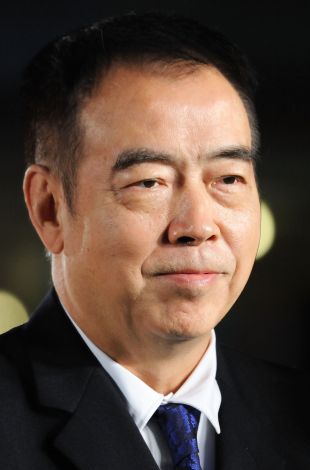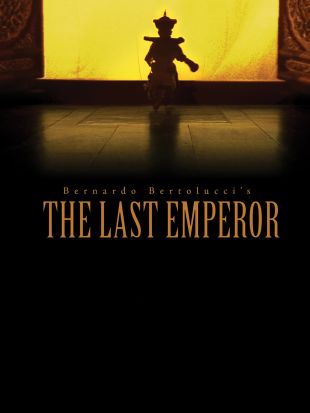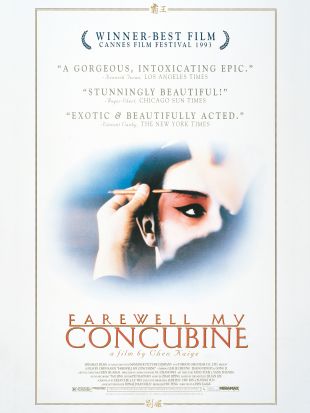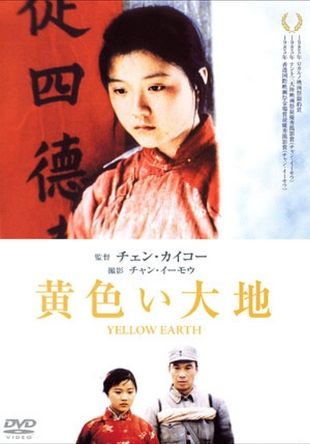Chen Kaige is one of China's most prominent and influential directors, and perhaps the central figure in China's Fifth Generation of filmmakers. Born Chen Aige in Beijing, he was the son of noted director Chen Huaiai, who directed a number of popular films during the 1950s and 1960s. As the chaos of Mao Zedong's Cultural Revolution was gathering steam, Chen, a 15-year-old member of the notorious Red Guard, publicly denounced his father. He later partially reenacted that day during the heartbreaking climax of Farewell, My Concubine (1989). During the late '60s, he was sent to labor in a rubber plantation in southwestern Yunnan province. Later, he served in the army but remained in the area. In 1975, as Mao's reign was drawing to a close, Chen returned to his hometown to work at the Beijing Film Processing Laboratory. Mao's successor, Deng Xiaopeng, set about undoing much of the destruction of Mao's bloody final decade, which included opening the nation's schools and academies. In 1978, Chen entered the Beijing Film Academy. He and such classmates as Zhang Yimou, Tian Zhuangzhuang, and Zhang Junzhao would eventually become the core of the Fifth Generation.
Chen made Farewell to Yesterday (1980) for Fujian television and served as an assistant director under Huang Jianzhong. In 1984, he collaborated with classmates Zhang Yimou and Hu Qun to create the landmark film Yellow Earth (1984), which stunned critics and audiences in its international debut at the Hong Kong Film Festival and brought worldwide attention to the changing face of Chinese cinema. Yellow Earth's detached tone, measured pace, and gorgeous visuals came as a revelation for a nation previously known for cranking out revolutionary operas that espoused the teachings of Mao. Chen's second feature, also a collaboration with Zhang, was the military drama The Big Parade (1985) about a group of soldiers who endure rigorous and often brutal training for the National Day parade in Tiananmen Square. Although the film is less stylistically innovative than Yellow Earth, it explored fundamental questions of Chinese patriotism, nationhood, and identity. While finishing The Big Parade, Chen was invited by Xi'an Film Studio head Wu Tianming to make King of the Children (1987), based on a novella written by old Yunnan workmate Ah Cheng, about children growing up during the Cultural Revolution. Here, as in his earlier works, Chen delivered a visually inventive work that delved deep into matters concerning the country. Chen and Wu both hoped that the film could match the international success of Zhang Yimou's Red Sorghum, but it failed to win any festival awards. In 1987, Chen received a scholarship to study filmmaking at New York University. There, he received funding to make Life on a String (1991), a mysterious and philosophical work about two blind wandering musicians, in which Chen's striking use of both visual and aural elements approached the avant-garde. For all its innovation, the film was a box-office flop. Moreover, at a time when Zhang Yimou's Ju Dou (1989) won festival prizes and an Academy Award nomination, Chen's film failed to garner much notice.
His 1992 work, Farewell My Concubine, marked a clear turning point in Chen's career, away from pure art and toward commercial success. He cast international art house star Gong Li and Hong Kong pop sensation Leslie Cheung in leading roles; although the film does pack an enormous emotional punch, it bears little of the stylistic invention of his previous films. The film eventually won a joint Palme d'Or with The Piano at the 1993 Cannes Film Festival and an Academy Award nomination, and it proved a commercial success, raking in millions of dollars in the U.S. alone. Chen made Temptress Moon in 1996, which again starred Leslie Cheung and Gong Li. However, the film received lukewarm reviews and disappointing box office. Chen Kaige's film The Emperor and The Assassin (1999) was screened at the 1999 Cannes Film Festival.



